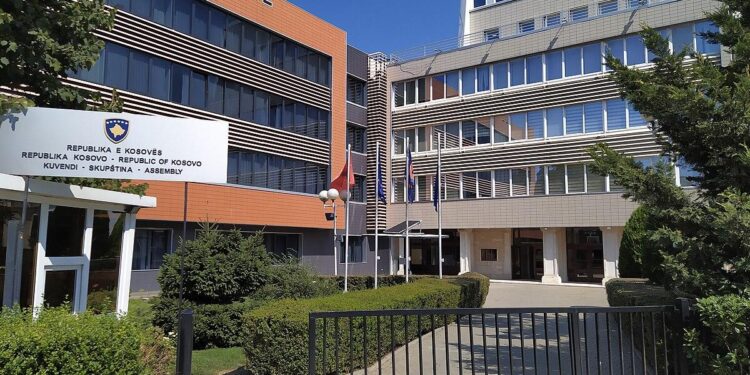The Kosovo Assembly has elected a new Speaker, marking a significant step forward in the country’s political process and clearing the way for the formation of a new government. The vote, closely watched by both domestic and international observers, signals progress amid ongoing political challenges in the Western Balkans. This development is expected to facilitate the coalition-building efforts necessary for establishing a stable administration, further shaping Kosovo’s path toward democratic consolidation and European integration.
Kosovo Assembly Elects New Speaker Marking Critical Step Towards Political Stability
The Kosovo Assembly’s election of the new Speaker is a decisive move that paves the way for the formation of a stable government after months of political uncertainty. This crucial appointment not only signals the resumption of legislative work but also serves as a catalyst for renewed dialogue among parties often divided by ideological and ethnic lines. Observers emphasize that the Speaker’s role will be pivotal in fostering consensus and ensuring parliamentary procedures advance without unnecessary delays.
Key implications of this development include:
- Acceleration of coalition negotiations to establish a functioning executive branch.
- Enhancement of legislative accountability and transparency.
- Improved regional cooperation under EU guidance and international oversight.
| Speaker | Political Affiliation | Term Start |
|---|---|---|
| Glauk Konjufca | Vetëvendosje | June 2024 |
Key Challenges Ahead for Kosovo Government Formation Amid Regional Dynamics
The path to forming a stable government in Kosovo remains fraught with complexities, as regional tensions continue to influence domestic politics. The recent election of the Assembly Speaker marks a significant procedural milestone; however, underlying political fragmentation and unresolved ethnic disputes pose persistent obstacles. Key parties are navigating an intricate landscape shaped by pressures from both Belgrade and the European Union, each wielding considerable influence over Kosovo’s institutional trajectory. This external involvement exacerbates internal divisions, complicating coalition-building efforts amid competing nationalist sentiments.
Several core challenges will shape the coming weeks:
- Maintaining political coherence amidst ideological divergence within Kosovo’s main parties
- Addressing demands of the Serbian minority, particularly in northern municipalities, while balancing sovereignty concerns
- Securing EU-backed reforms as a prerequisite for international legitimacy and financial aid
- Mitigating external interference, especially given Serbia’s stance on Kosovo’s independence
| Challenge | Impact |
|---|---|
| Political Fragmentation | Delayed coalition agreements |
| Ethnic Divisions | Potential unrest in northern regions |
| External Pressures | Restrictions on policy autonomy |
| EU Reform Expectations | Conditionality for financial aid |
Recommendations for Strengthening Institutional Cooperation and Advancing Reform Agenda
To enhance collaboration between Kosovo’s key institutions and expedite the reform agenda, it is imperative to establish clear communication channels and foster mutual trust. Regular inter-institutional forums, involving parliamentary committees, government ministries, and civil society, should be institutionalized to ensure continuous dialogue and effective coordination. Emphasizing transparency through shared progress reports and joint accountability mechanisms will not only build public confidence but also streamline decision-making processes essential for reform implementation.
Key steps for strengthening cooperation include:
- Creating a centralized digital platform for inter-institutional data sharing and policy monitoring.
- Organizing quarterly strategy sessions focused on priority reforms with direct participation from the Assembly, executive branches, and stakeholders.
- Implementing capacity-building programs to equip officials with negotiation and conflict-resolution skills.
- Enhancing legal frameworks to safeguard institutional independence while promoting synergy.
| Institution | Responsibility | Proposed Reform Area |
|---|---|---|
| Kosovo Assembly | Legislation & Oversight | Judicial Reform |
| Executive Branch | Policy Implementation | Anti-Corruption Measures |
| Civil Society | Public Engagement | Transparency Initiatives |
The Way Forward
The election of the new Speaker of the Kosovo Assembly marks a significant step forward in the country’s political process, setting the stage for the formation of a new government. As Kosovo moves closer to political stability, attention now turns to the coalition negotiations and the challenges ahead in addressing both domestic priorities and ongoing regional dynamics. Observers across the Western Balkans and Europe will be closely monitoring developments, given their implications for Kosovo’s future governance and its path toward European integration.
















